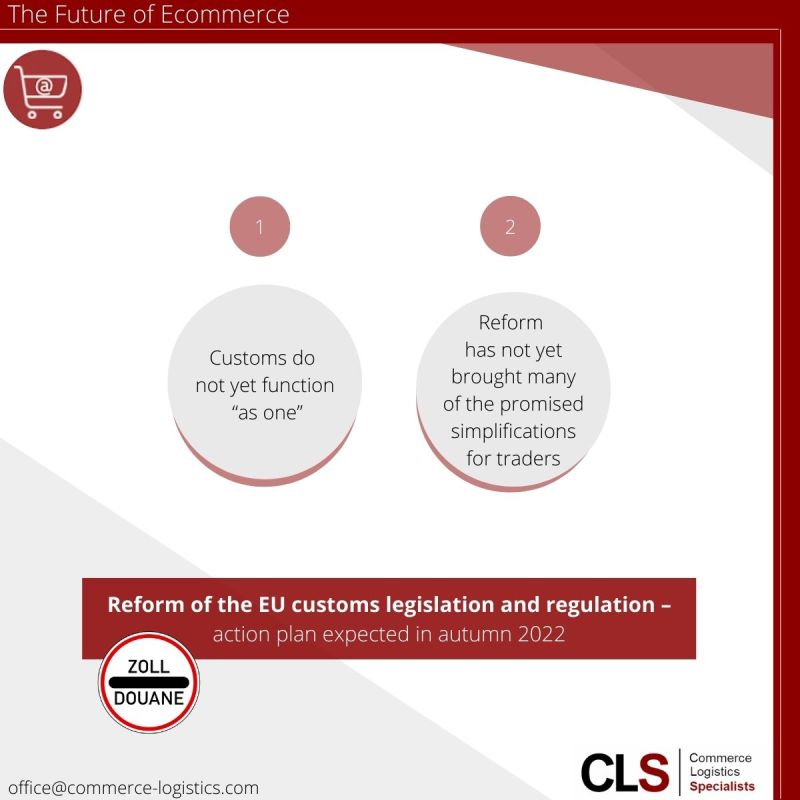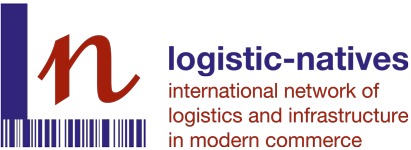𝗥𝗲𝗳𝗼𝗿𝗺 𝗼𝗳 𝗘𝗨 𝗰𝘂𝘀𝘁𝗼𝗺𝘀 𝗹𝗲𝗴𝗶𝘀𝗹𝗮𝘁𝗶𝗼𝗻 𝗮𝗻𝗱 𝗿𝗲𝗴𝘂𝗹𝗮𝘁𝗶𝗼𝗻 – 𝗮𝗰𝘁𝗶𝗼𝗻 𝗽𝗹𝗮𝗻 𝗲𝘅𝗽𝗲𝗰𝘁𝗲𝗱 𝗶𝗻 𝗮𝘂𝘁𝘂𝗺𝗻 𝟮𝟬𝟮𝟮

The #EU Customs Union is a #major cornerstone of the EU #SingleMarket and external #tradepolicy, and a #key component in the EU’s #strategic autonomy. The Union Customs Code (UCC) provides a comprehensive #framework for customs #rules and procedures within the EU #customs #territory.
The EU #VAT #Ecommerce #package resulted in a completely new, simplified customs procedure based on a simplified #datamodel (super-reduced #dataset, H7) which was introduced so that the dramatically increased #volume of #B2C #ecommerce shipments in the low-value sector could be (#digitally) cleared.
However, despite its evident #success and significant #reforms, the Customs Union is facing #challenges analogous to those faced by the #tax authorities in adopting the new #VAT #models (#OSS, #IOSS). Consequently, Annex II of the EU #Commission Work Program 2022 foresees a revision of the Union Customs #legislation.
𝟭.𝗖𝘂𝘀𝘁𝗼𝗺𝘀 𝗱𝗼 𝗻𝗼𝘁 𝘆𝗲𝘁 𝗳𝘂𝗻𝗰𝘁𝗶𝗼𝗻 “𝗮𝘀 𝗼𝗻𝗲”
Although adopted at EU level, customs legislation is implemented by #national customs #authorities, each working primarily in its national #environment and endowed by the Member State with a high #degree of “creative freedom”. Despite the #success of the UCC in #harmonising certain areas (#decisions, authorisations, #valuation, data requirements), the uneven implementation of the #rules and #procedures remains a #major problem, especially for #suppliers and #logistics service providers #serving more than one EU #market. This is particularly true for customs #riskmanagement, where differences in capacities, practices and priorities, combined with the absence of an EU-wide #analysis of #financial and non-financial #risks, lead to divergences in protection and loss of revenues. Relatively weak links are exploited by highly adaptive illicit #traders, reducing the #effectiveness of #individual #action by any Member State. Uneven #facilitation and simplifications for #legitimate #trade is also problematic for external #competitiveness, the administrative burden, and the internal level playing field.
𝟮.𝗥𝗲𝗳𝗼𝗿𝗺 𝗵𝗮𝘀 𝗻𝗼𝘁 𝘆𝗲𝘁 𝗯𝗿𝗼𝘂𝗴𝗵𝘁 𝗺𝗮𝗻𝘆 𝗼𝗳 𝘁𝗵𝗲 𝗽𝗿𝗼𝗺𝗶𝘀𝗲𝗱 𝘀𝗶𝗺𝗽𝗹𝗶𝗳𝗶𝗰𝗮𝘁𝗶𝗼𝗻𝘀 𝗳𝗼𝗿 𝘁𝗿𝗮𝗱𝗲𝗿𝘀
In many cases, the #reforms have led to clear #progress in the area of #digitisation, but have not lightened the #administrative burden and eliminated unnecessary #formalities (although promising, EU-level centralised #clearance will be deployed in 2023). Other simplifications such as self-assessment are not used because of #legal #uncertainty about their application in #practice. There is therefore huge scope for simplifying the customs #environment for #traders.
Click here for the LinkedIn-Article.

Walter Trezek
Document Exchange Network GmbH

